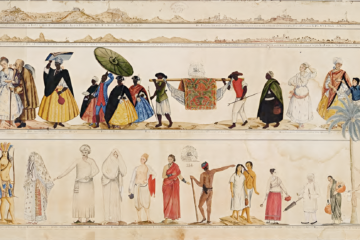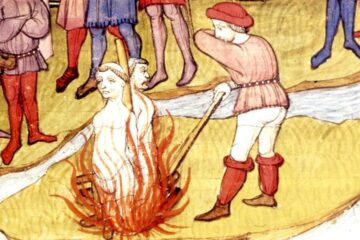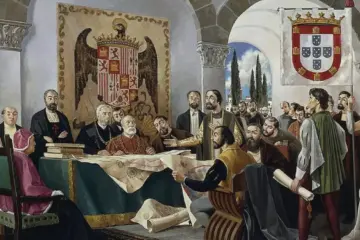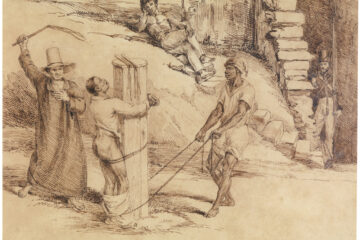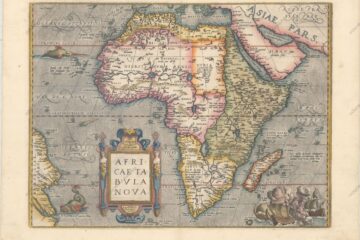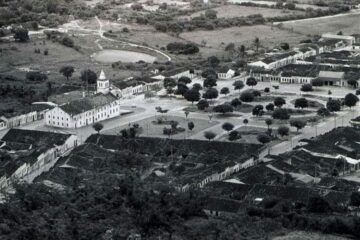Jackson do Pandeiro: Biography and History
José Gomes Filho, known as Jackson do Pandeiro (the King of Rhythm), was born on 30 August 1919 and died on 10 July 1982.
He was an important instrumentalist, composer and singer who recorded a number of forrós and sambas and helped to popularise the northeastern culture.
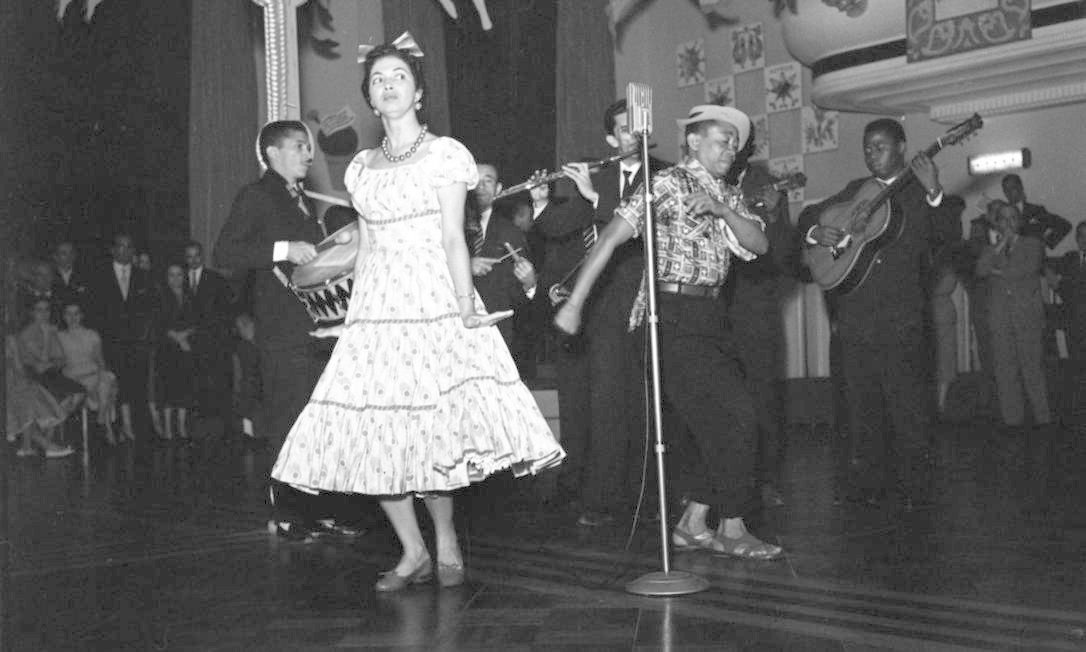

Jackson do Pandeiro e Almira Castilho03:11

100 anos de Jackson do Pandeiro12:01

Jackson do Pandeiro História04:13

Chiclete com Banana02:15
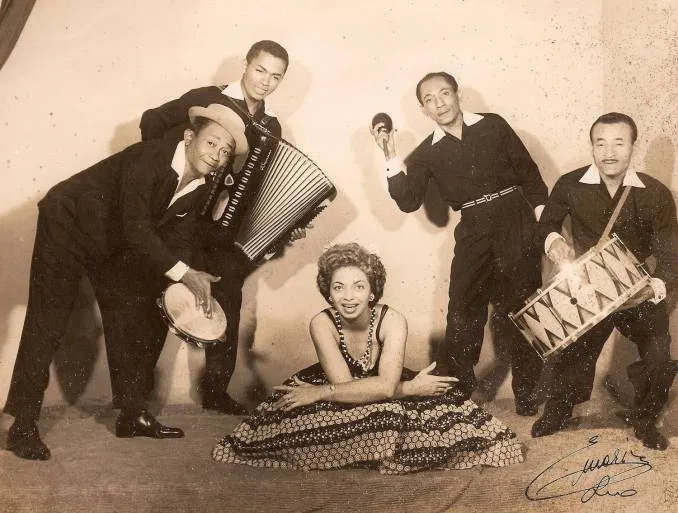
Jackson do Pandeiro canta Sebastiana02:02
Musical and family partnership
Jackson and his wife, Almira Castilho, were a partnership on stage, in their lyrics and in their family life. Jackson do Pandeiro, the King of Rhythm, popularised the dizzying rhythmic division and sharp metrical lyrics.
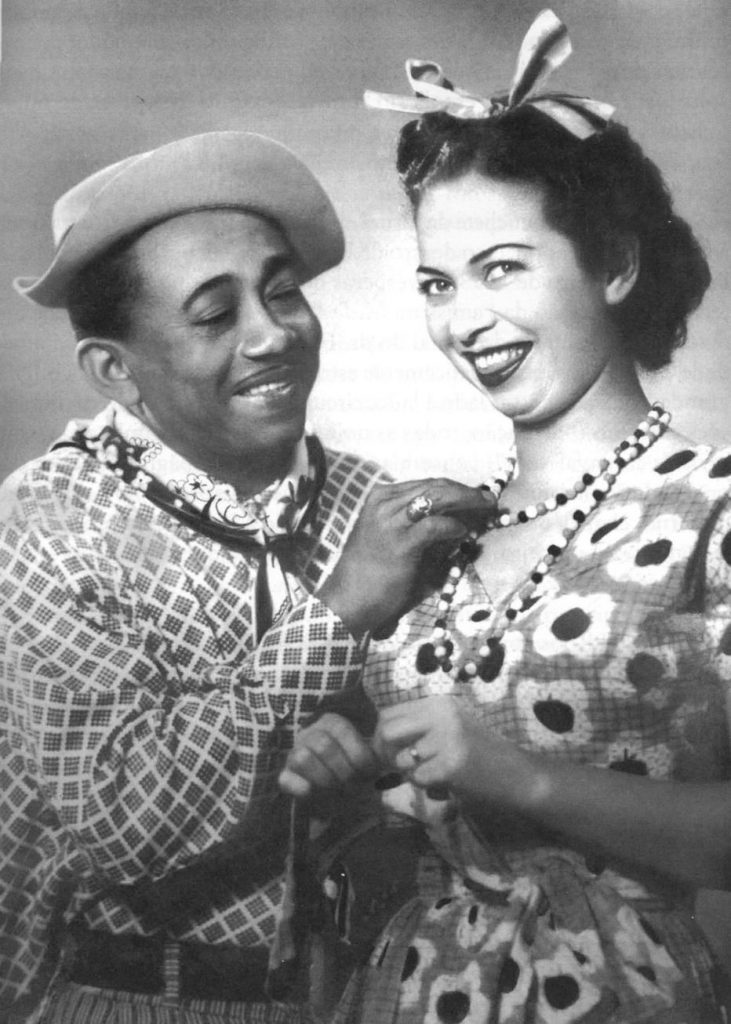
The song “Chiclete com Banana“, the best-known song in Jackson do Pandeiro’s repertoire, wasn’t “that” successful when it was released in 1959.
Jackson’s style, born in deep Paraíba, formed in Campina Grande and left Pernambuco to conquer the world, was already on people’s lips.
His debut album, a 78-revolution released four years earlier, featured the coconut Sebastiana and the rocker Forró em Limoeiro, with an incredible 50,000 buyers, a feat even for the posters on Rádio Nacional.
Jackson’s impact
“O boogie-woogie de pandeiro e violão” struck fans as another of the singer’s humorous rants. It was gradually forgotten until 1972, when it resurfaced as a Tropical avant-garde song in the voice of Gilberto Gil. Today it’s an absolute classic.
“Jackson do Pandeiro is one of my greatest loves. That I had, have and will always have,” says Gilberto Gil.

He was an artist with the northeastern verve typical of the culture born from the intertwining of rural life and some medium-sized cities, such as Campina Grande, which began to develop from the 1930s and 1940s.
Cultural influence
Jackson do Pandeiro left an indelible mark on Brazilian popular music in the second half of the 20th century. “While Luiz Gonzaga popularised baião, xote and xaxado, Jackson do Pandeiro projected coconut and samba from the northeast, with its dizzying rhythmic division and sharp metric lyrics,” says music critic Tárik de Souza.
Collaboration with Almira Castilho
Jackson do Pandeiro and his partner Almira Castilho injected humour and mischief into the rich cultural heritage of their region.
It spilled over into tropicalism, influencing the later generation of artists such as Alceu Valença, Elba Ramalho and Zé Ramalho, as well as the mangue beat of Nação Zumbi and Mundo Livre S.A..
King of rhythm and orchestra man
Jackson was known as the King of Rhythm and also as the Orchestra Man. He played everything: ganzá, reco-reco, zabumba, tambourine, harmonica, accordion and piano. If he wanted to play jazz or blues on the drums, that was fine. But it was on the pandeiro that he excelled, and his virtuosity became legendary.

Musical legacy and comparisons
“Jackson do Pandeiro is to Brazilian music what Mané Garrincha is to football. He sang and played the tambourine, going back and forth from the back line until he scored a goal or sent the ball into the confusion of the small musical area,” says the historian Luiz Antonio Simas.
In the biography Jackson do Pandeiro: O Rei do Ritmo, by Fernando Moura and Antônio Vicente, conductor Moacir Santos points out that “Jackson was much more than a rhythm player. He had an expansive ability to translate his musical thoughts into rhythm.
Inspirations and innovations
As a singer in the early years of his career, Jackson do Pandeiro mirrored Manezinho Araújo, author of Como Tem Zé na Paraíba, from whom he inherited the short-brimmed hat worn on the side. His influence was evident in the Carioca accent, the spiky metrics and the breques of Jorge Veiga, the samba cartoonist.
In 1954, another Jackson bolachão – with the recordings of 1 a 1 and A Mulher do Aníbal – broke through on Sul Maravilha, popularising his metallic voice. His first impression of Rio de Janeiro was: “Homi, it looks like a tray of couscous!”.
The duo of noise and cinema success
Hired by Rádio Nacional, Jackson and Almira became the Duo of Noise. They stood out aesthetically on television, knowing how to make the most of their gestural possibilities. They soon moved on to the cinema, where they had success with “Forró de Caruaru“, “O Canto da Ema“, “Xote de Copacabana“, “Cabo Tenório“, “17 na Corrente” and “Cantiga do Sapo“.
Popular fascination and lasting legacy
João Bosco, author of the tribute “Bate um Balaio ou Rockson do Pandeiro“, emphasises Jackson’s fascination with the working class. “On holiday, listening to Jackson do Pandeiro, a guy who sold beer stopped everything and stayed up all night listening to his music”.
Jackson, who had a horror of hairy people, especially since the emergence of the Jovem Guarda singers in the 1960s, saw his influence fade. However, he was surprised by the audacity of the youth of 1972.
Final years and celebrations
Jackson do Pandeiro’s diabetic heart stopped beating in 1982. However, as critic Tárik de Souza assures us, “in the hundred years of the patriarch, this coconut tree will still give coconuts”.
Culture and development in Paraíba
While Flora Mourão was playing the leading role in coconut circles, Alagoa Grande was dressing up in culture with the news that arrived on the railway. At the beginning of the 20th century, the Brejo region of Paraíba was an economic centre in the northeast, boosted by the arrival of the train, which strengthened links between the interior and the big cities.
Launches and documentaries
The researcher Rodrigo Fauor is preparing the reissue of discs recorded by Columbia and CBS. In 2016, Fauor organised the box set “O Rei do Ritmo” (The King of Rhythm), which brought together 235 of the singer’s tracks. The documentary Jackson: Batida do Pandeiro, by Marcus Vilar and Cacá Teixeira, features unpublished interviews with Almira Castilho and Geraldo Correa, a childhood friend of the pandeirista.
Conclusion
Jackson do Pandeiro, the King of Rhythm, is an iconic figure in Brazilian music whose influence and legacy continue to this day. His music continues to resonate, celebrating the rich northeastern culture and musical diversity that he helped shape.
Publicações Relacionadas
Biography of Maria Bethania
Olodum with Michael Jackson in Salvador de Bahia
Gal Costa: Biography of a Musical Icon
Musical Style and History of Samba de Roda
Gilberto Gil - Biography, history and musical legacy
Carlinhos Brown: Biography of a Percussion Legend
Biography of Carmen Miranda
Biography of Simone Bittencourt
Biography of Luiz Gonzaga
Elba Ramalho: A Journey Through Music History
Biography of Os Novos Baianos
Origins and evolution of forró in São João festivities
Forró Pé-de-Serrra: The Heart of Brazilian Music
João Gilberto: The Father of Bossa Nova
The History of Forró: Origins and Development
Biography of Ivete Sangalo
Biography of Dorival Caymmi
History of the Salvador Carnival
This post is also on:
![]() Português
Português ![]() English
English ![]() Deutsch
Deutsch ![]() Español
Español ![]() Français
Français


